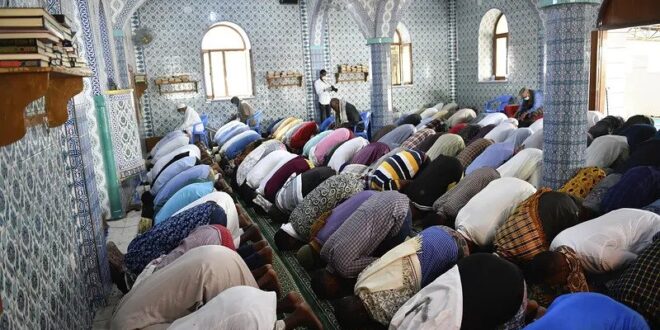Russia's minorities ponder Trump's return
Even the minorities of the former great empire who aspire to independence are questioning what the tycoon's approach to the Ukrainian issue will really be and what consequences this may have for their battles. Intellectual Kharun ar-Rusi: Washington has always been Russocentric even in its support for opposition to Putin
Moscow (AsiaNews) - Donald Trump's new presidential term could turn out to be a problem, or an opportunity to be exploited also for the de-colonisation of Russia's minor peoples, as the expert Kharun ar-Rusi (Vadim Sidorov), one of the founders of the Russian Muslim movement, a researcher at the Faculty of Philosophy of Prague's Karlov University and the author of numerous articles in various journals and platforms such as Idel.Realii believes.
He emphasises the crucial significance of Ukraine for the various regional movements, and the White House's choices regarding Kiev will have great resonance for all the peoples of Russia.
The new American president has repeatedly said that he has no intention of fighting foreign governments, even if they do not meet the criteria of Western democracy, and this all the more so for those who challenge the territorial integrity of their own states with totalitarian regimes, such as that of the Kremlin. In fact, even the previous administrations in Washington did not support the cause of the post-Soviet de-colonisers any more than any of the other Western governments, except in words.
According to Kharun, the Americans and Europeans are at best inclined to support ‘Russocentric oppositions’ such as Naval'nyj, Kara-Murza or Jašin, who for the minority representatives are only trying to ‘clean up the image’ of Russia, without renouncing imperial ambitions.
A demonstration of this would be the recent prisoner exchange between Russians and Westerners, in which not a single representative of regional autonomist movements was included.
Russian dissidents are granted wide freedom of expression in the West, but with little openness to those who would like a ‘dismemberment of Russia’.
Trump's new administration may significantly reduce humanitarian aid to the many non-governmental organisations, media and human rights activists, although such support was not lacking in his previous term.
The Washington administration had then explicitly supported the cause of persecuted Turkic-speaking peoples in China by introducing sanctions for violations of Uighur rights.
Their hope, therefore, is that these practices of solidarity with lesser peoples will not be discontinued, at least so that the US does not lose its image as a world leader; and as Trump is a businessman who attaches more importance to practical things, this may not be limited to mere declarations.
Kharun emphasises Ukraine's decisive role in the prospect of de-Russification, which is the main reason for Putin's war against ‘Western influences’, in reality ‘against the will of the peoples to win their independence’.
As much as there is talk of a possible agreement between Trump and Putin, this should not mean the liquidation of Ukrainian statehood as an alternative to Russia, and reflexively could strengthen the aspirations of the other peoples of the former tsarist and Soviet empire as well.
As much as Trump's realism does not bode well for Ukraine's future in its territorial integrity, the hope is that the American president will not leave the whole country at Putin's mercy, considering also its statehood recognised by international norms.
Saving Ukraine means ‘saving all Western civilisation’, Kharun believes, and granting hope to all oppressed peoples of the world, and especially in the Eurasian world.
As difficult as it may be for Ukraine to preserve its national identity, the other nationalities that do not enjoy a recognised state structure can also continue to ‘claim their own history, their own linguistic, cultural and geographical specificity’, regardless of the political orientations of the world's superpowers, but making use of the different skills and specificities of each leader, including those of the ‘realist’ Donald with his defence of the American people, itself formed in the relationship between different peoples and different histories.
19/09/2019 15:28







.png)










